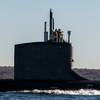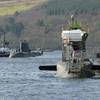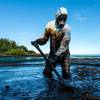Gulf Ships to Join Global Green Drive
He said there was an average of 4,000 boats operating within regional waters everyday and many discharge waste oil and rubbish into the sea. Capt Al Janahi said the Gulf region was particularly vulnerable to the effects of pollution because of its shallow and slow moving water takes three to five years to circulate. He said that any oil spill would heavily affect the region's natural resources and would take several decades to rehabilitate.
The region's marine life and fishing industry has already been affected as a result of the pollution caused by three decades of political conflicts within the Gulf, he said. However, he said that since the GCC had implemented tougher measures, violation of discharging oily waste had declined significantly. The International Convention for the Prevention of Pollution from Ships, 1973, as modified by the Protocol of 1978 (Marpol 73/78), requires all ships regardless of size or nationality to comply and aims to reduce all types of pollution violations. The convention prohibits all plastics, including but not limited to fishing nets, synthetic ropes, plastic garbage bags and incinerator ashes from plastic products from being disposed into Gulf waters.
Floating dunnage, lining and packing materials, paper, rags, glass, metal, bottles, crockery and similar refuse are also prohibited. It also prohibits the discharge of any rubbish, except food waste when the ship is more than 12 nautical miles from the nearest land. Ships measuring 12 metres and above and 150 tonnage and above must be fitted with the requirements and equipment specified by the convention.













